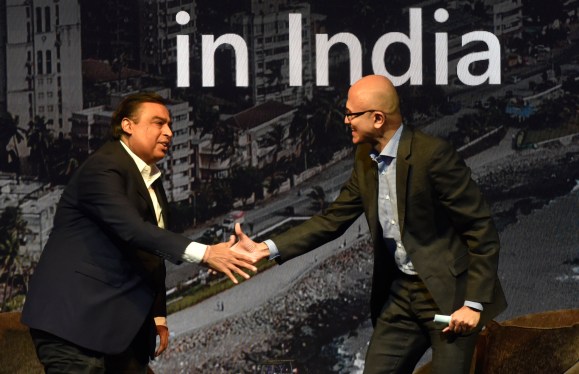Stricter Regulation of Internet Services Opposed by Industry Coalition
India’s telecom networks have been pushing to bring internet services under stricter regulation, but global technology giants are resisting these efforts. The Asia Internet Coalition (AIC), a powerful industry body representing Amazon, Apple, Google, Meta, Microsoft, Netflix, and Spotify, has forcefully argued against the inclusion of over-the-top (OTT) services in the proposed regulatory framework for telecom operators.
Fundamental Differences Between OTT Services and Telecom Operators
In its submission to the Telecom Regulatory Authority of India (TRAI), the AIC emphasized that there are fundamental differences between OTT services and traditional telecom operations. "OTT communication services operate on the application layer, while telecom service providers (TSPs) operate on the network layer," the coalition wrote. This distinction is crucial in understanding the role of each entity within the ecosystem.
Additional Functionalities Offered by OTT Services
Unlike TSPs, OTT providers do not have rights to acquire spectrum, obtain numbering resources or interconnect with the public switched telephone network. However, OTT services offer additional functionalities like group chats, voice notes, and in-app content sharing that are not provided by traditional telecom services.
Regulatory Framework Could Violate Net Neutrality Principles
Including internet services in the new framework could violate net neutrality principles and harm consumer interests, the AIC warned. "At the outset, we would like to submit that OTT communication services are already regulated under a host of laws, including as ‘intermediaries’ under the IT Act and the rules and regulations issued thereunder," the coalition stated.
Existing Regulations Already Cover OTT Services
The coalition argues that there are already enough regulations in India that oversee OTT services. "This includes requirements for interception, content takedown, incident reporting, and user grievance redressal under the IT Act and related rules," the AIC noted. This existing regulatory framework ensures that OTT providers operate within a well-defined set of guidelines.
Telcos’ Push for Regulatory Intervention
The resistance from the AIC comes in response to a coordinated push by India’s top telecom operators – Bharti Airtel, Reliance Jio, and Vodafone Idea – to bring OTT services under a new authorization framework. The telcos are seeking regulatory intervention to boost their margins, which have been impacted by low average revenue per user (ARPU) of approximately $2 per month.
Telcos’ Investment in 5G Airwaves
The carriers have collectively invested $19 billion in 5G airwaves last year. Having made this significant investment, the telcos are now seeking regulatory support to ensure a return on their investment. However, the AIC disputes claims of OTT services ‘free-riding’ on telecom infrastructure.
OTT Services Drive Increased Data Consumption and Revenues
Jeff Paine, AIC’s managing director, said that OTT services have driven increased data consumption and revenues for carriers. The coalition argues that regulating OTT services under the Telecommunications Act, 2023 would go beyond its intended scope.
Regulatory Framework and OTT Services
The AIC noted that when the Act was introduced in Parliament, the telecoms minister, Ashwini Vaishnaw, clarified that ‘OTT has been regulated by the IT Act of 2000 and continues to be regulated by the IT Act’ and also stipulated ‘there is no intention to regulate OTT services under the Telecommunications Act.’
International Implications
The push for stricter regulation of internet services in India has significant international implications. The country’s regulatory efforts could set a precedent for other countries, potentially impacting the global digital ecosystem.
Conclusion
The resistance from the AIC highlights the complexities involved in regulating internet services. While the telcos are seeking regulatory intervention to boost their margins, the industry coalition is concerned about the potential impact on consumer interests and net neutrality principles. The outcome of this regulatory battle will have far-reaching implications for India’s digital ecosystem.
Related Articles
- Fundraising: iRobot co-founder’s new home robot startup hopes to raise $30M
- In Brief: OpenAI’s take on AI agents could come in January
- Climate: Ecosia and Qwant, two European search engines, join forces on an index to shrink reliance on Big Tech
Join the Conversation
What are your thoughts on the regulatory efforts in India? Share your opinions with us!
Subscribe to Our Newsletters
Get the latest news from TechCrunch delivered right to your inbox.
- TechCrunch Daily: Every weekday and Sunday, you can get the best of TechCrunch’s coverage.
- AI: TechCrunch’s AI experts cover the latest news in the fast-moving field.
- Space: Every Monday, gets you up to speed on the latest advances in aerospace.
Subscribe now!
Stay Connected
Join our community of tech enthusiasts and stay connected with us on social media platforms.




